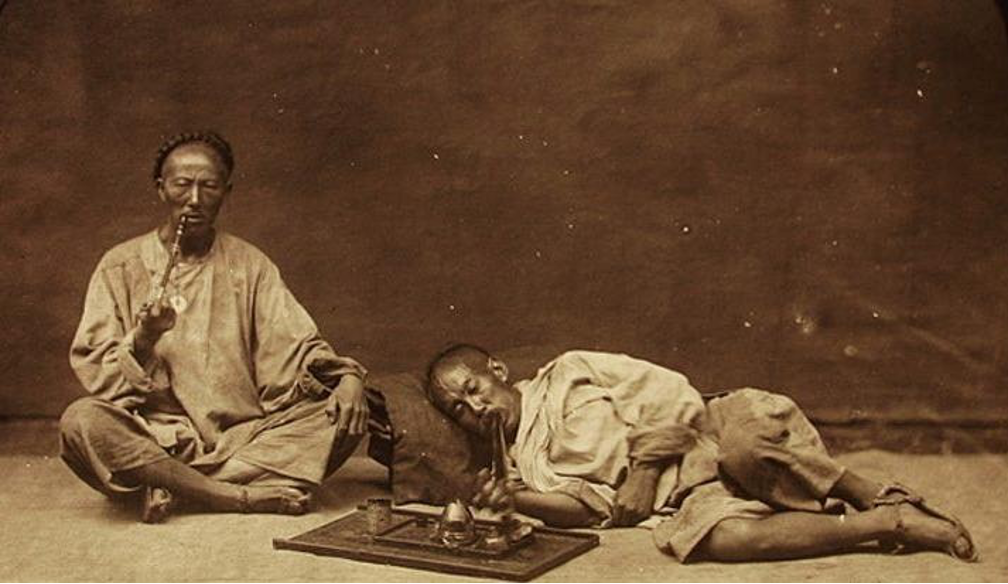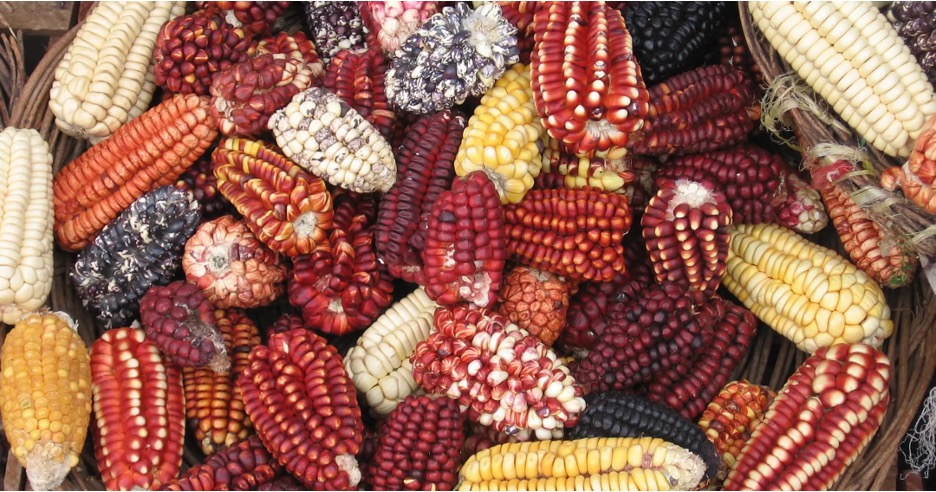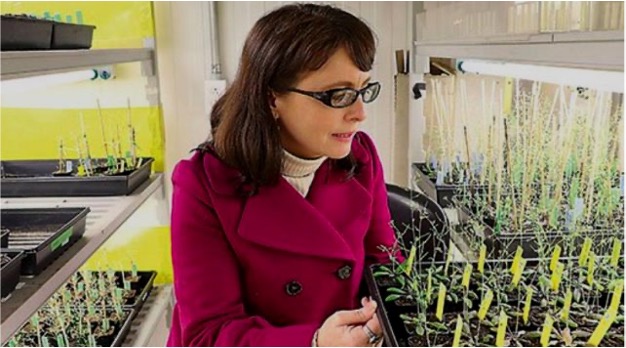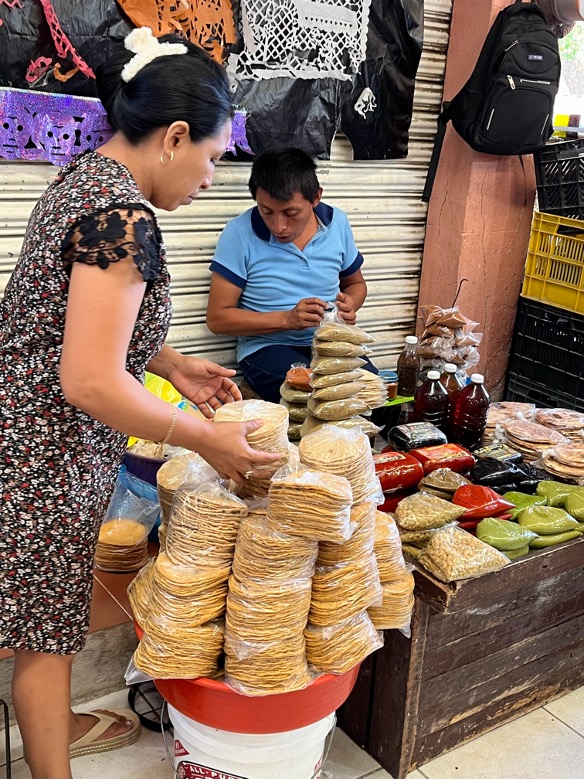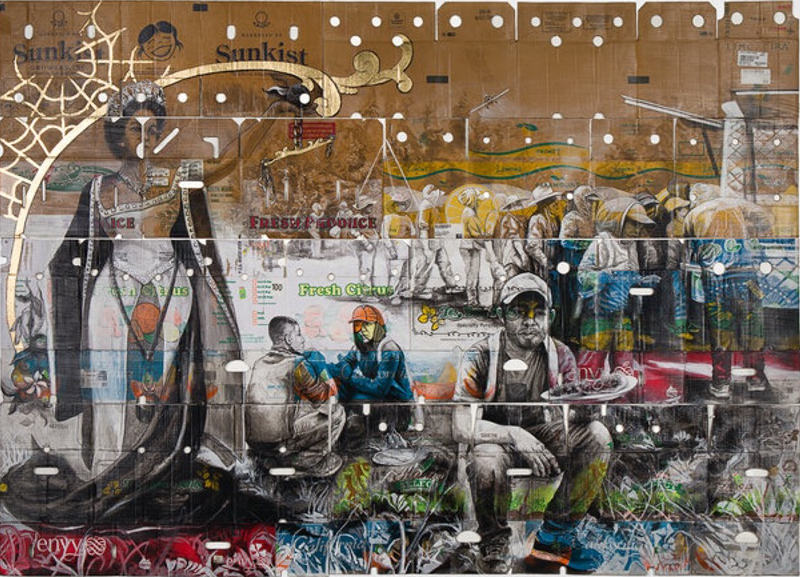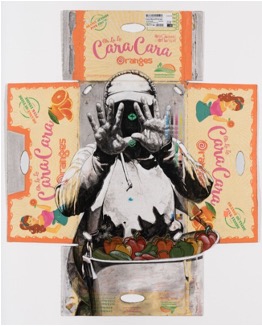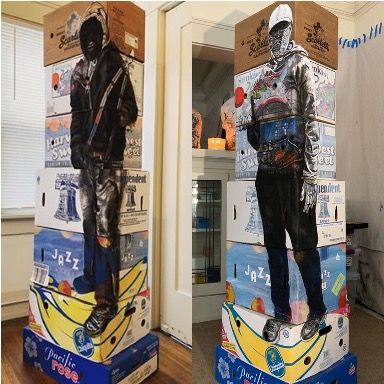|
|
|
|
The weekly newsletter of the Mexico Solidarity Project |
|
Every issue archived online at mexicosolidarityproject.org |
|
|
|
May 08, 2024/ Meizhu Lui, for the editorial team |
|
|
|
Trade: Foreign Business vs People’s Health |
|
|
Smoking Opium in China |
|
In the early 1800s, the British people loved tea and silk from China, but there wasn’t much the Chinese wanted from Britain. How could the British close the trade imbalance without paying out a lot of silver?
The trade in illegal drugs has always been a terrific way to make a profit. Since the 1700s, the Chinese government had banned opium to protect its people’s health, but British merchants successfully smuggled massive quantities into China anyway. When China pushed back, tensions intensified with Britain until, in 1839, it started the Opium War and forced China to accept opium at the end of a gun barrel.
Fast forward to the US and Mexico today. Under the USMCA free trade agreement, US companies have the right to export goods to Mexico, and US agribusiness seized the opportunity to flood Mexico’s enormous corn market with cheap corn. Much of it is genetically modified, and Mexico argues that it threatens the country's native corn varieties and could pose a threat to human health. Thus, President Lopez Obrador banned the import of transgenetic corn for use in food products.
But like the British two centuries ago, the US considers protecting its capitalist profits more important than protecting people’s lives. In response to AMLO’s ban, they filed a suit against Mexico under the terms of the USMCA to force Mexico to accept US GMO corn.
As Alma Piñeyro explains, a lot is at stake. Will Mexico, like China, be forced to import a product they judge unsafe for their people and harmful to their native agriculture? |
|
For a deeper dive into current news and analysis in English, check out our media website. And definitely see the new English podcast ¡Soberanía! (Sovereignty) with José Luis Granados Ceja and Kurt Hackbarth. They entertain, while dismantling the lies and distortions about Mexico fed to us by the mainstream media. |
|
Don’t miss an issue! Sign up for a free Mexico Solidarity Bulletin subscription. |
|
|
More than Food: US Threatens Mexico's Corn |
|
Alma Piñeyro-Nelson, PhD, is a plant geneticist who has worked with transgene monitoring in Mexico for over 20 years. She is a Professor at the Department of Plant and Animal Production at the Xochimilco campus of the Metropolitan Autonomous University in Mexico City. She participated in some of the research on transgene biomonitoring used by the Mexican government in arguments they submitted to counter the US suit to stop Mexico's ban on GM corn. |
|
|
You’re a plant geneticist. Did you ever imagine that you would be involved in an international trade dispute?
Since junior high, when the Zapatista uprising happened, I’ve been a social activist. In 2001, I followed the first debate about the implications of finding transgenes (these are a type of GMO, or genetically modified organism) in our native corn plants, introduced to Mexico by the US after NAFTA was passed. The report, published in Nature magazine, kicked off a firestorm. For the first time, it was asked, “What are the biological effects of plants that pass on their transgenes to their offspring?” “What will happen when these plants mix with natural species?” “What are the legal, economic and political implications?” |
|
|
Maize is a national treasure |
|
Plant geneticist Dr. Elena Álvarez-Buylla, together with other scientists, raised the concern that GMO corn would contaminate our native species, called “landraces,” and make extinct our huge diversity of corn. Maize is a national treasure. Mexico is the birthplace of corn and holds half of all the genetic diversity of corn in the world. |
|
At that time, only biotechnologists’ comments were considered valid. But over time, as more people from diverse fields weighed in, it became a debate about what sovereignty means: would Mexico determine the future of this crop that is part of Mexico’s heritage and identity?
Did Mexico stop the spread of GMO corn?
At first, discussion was confined to academic circles, but in the early 2000’s, the head of the Mexican National Science Foundation funded research that asked, “How big is the contamination? What regions are affected?” Several other studies, some conducted by grassroots organizations, followed. |
|
Genetic analyses of corn samples collected between 2002 and 2004 showed the presence of transgenes in landraces, but it was only 10%. At that point, the spread could have been contained, as there had been a de facto moratorium on its planting since 1998. The assumption was that the National Biosafety Authority would follow up.
But this was not welcome news to the neoliberal government! The researchers got blacklisted from a scientific journal, and nothing was done.
Between 2009 and 2013, the government allowed new permits, and a new surge of GMO corn was planted in Mexico. In 2017, published research showed that the percentage of corn products containing transgenic material had climbed to 82%.
Did the contamination originate from US corn? Samples taken from the US and other countries that import US corn had the same transgenes, so we’re pretty sure that the likely origin is the US. |
|
|
Indigenous milpa system: corn, beans and squash planted together |
|
What are the health effects of eating products made from GMO corn?
I’m a plant geneticist, not a health researcher. But I know that in France, a long-term study done with animals found that those fed transgenic corn had a higher incidence of cancer. Part of the reason is that GMO plants are more resistant to toxins, so farmers can use more glyphosate-based weedkillers, such as Monsanto’s RoundUp; glyphosates have been found to cause cancer. |
|
|
Elena Álvarez-Buylla heads the National Council of Science and Technology |
|
Fortunately, Elena Álvarez-Buylla is now the head of the National Biosafety Authority — we have a real advocate in charge now. The current Lopez Obrador administration has taken a new, precautionary stance on GM corn, and AMLO has decreed a ban. However, the ban is very limited — only for masa or corn flour, which is only one way we eat corn. But he also funded a long-term study on the health effects of a diet of transgenic corn on chickens, pigs, and rats. |
|
In negotiations between the US and Mexico, Mexico agreed that they would only ban GMO corn used for human consumption — a small percentage of the corn imports. So why did the US still file a formal dispute?
The reasons are more political than economic. First, if you question the food safety of US products, you’re questioning the legitimacy of US commercial enterprises — AND of the “scientific studies” asserting that these products are safe. Second, the US doesn’t want to change its model of imposing imports on countries it trades with. Last, if Mexico were to succeed in banning this US import, it would set a bad international precedent, showing that a small country of the global south can take on the US and win.
Many people think that science is objective and neutral. But the questions you choose to investigate or not investigate are political decisions. To accommodate foreign investors and trade partners, previous Mexican administrations chose to ignore questions about GMO seeds, plants, and products. Moreover, the way you address biological questions is also political. For example, researchers analyzed the coarse grain components of grain — ash, fats, carbohydrates. They found that GMO corn and native corn were similar in terms of their components and therefore made the assumption that these types of corn were “substantially equivalent.” Under this assumption, some governments deemed any further investigation unnecessary.
So as a plant geneticist, to go back to your first question, I’m not surprised that my research is a political project.
How can supporters help Mexico win this legal dispute? |
|
We need people to understand why this is so important to us. Corn is our food staple; it’s as important to us as wheat is to people in the US. What if all US bread was contaminated with transgenes and potentially cancer-causing?! US consumers are beginning to want produce like heirloom tomatoes, which have a range of wonderful flavors compared to agribusiness tomatoes produced for their uniformity of size and shape, to make them easier to pack and ship. US consumers can advocate to protect diversity.
For centuries, Mexico’s agricultural practices gave us a wealth of healthy corn. We are a reservoir of corn varieties, we have a huge living seed bank. But rather than banking them, we need to plant them again. Let them live! |
|
|
selling tortillas at a market in Mérida/ photo: Meizhu Lui |
|
|
|
|
Narsiso Martínez: Lived Experience |
|
|
Activist Vicky Hamlin, a retired tradeswoman, union shop steward, and painter, shines the light — in her art and in this column — on the lives of working people and the world they live in. |
|
|
Narsiso Martínez, born in 1977 near Oaxaca, Mexico, moved to Los Angeles when he was 21. He held a mix of jobs in manual labor, studying at LA City College and California State University, Long Beach, where he received his MFA in 2018. He has won prestigious awards, and exhibits nationally and internationally. He lives in Long Beach, CA. |
|
|
If you were googling Narsiso Martínez, you could look under portraits, labor, farm workers, paintings, collage. For me, what takes this work above and beyond is that Martinez does not stay in any of these genre boxes. It takes a high level of sophistication to step outside of a singular comfort zone, and he clearly is way up there on the sophistication meter. I am drawn to his drawing technique, the skill in rendering gesture, the movement of his figures. But that alone doesn’t begin to tell his stories. |
|
Masks. What about masks? His faces are largely covered, obviously because field workers have to protect themselves from sun, dust, poison, debris. But also from our gaze, our critical, judgey gaze. From INS, from cops, gaze can mean deportation. Hidden faces. Masks.
And the connections between work, life, identity? No neat algorithm here, but a web of real experience. Family near and far, co-workers with shared histories and needs. Community. Cooperation, understanding, language. So many languages, so many meanings. |
|
|
"USA Product" |
|
|
"Royal-ty" connects these strands in a lifetime of stories and images. Martínez’ lived experience, shared here, takes all these vibrant strands and weaves them together. |
|
The physicality of his pieces, the boxes and bags that frame and define the portraits. Individuals and groups; relationships. The beauty in the swirling colors, the starkness of black and white. The fine, delicate line and the bold composition. “The Good Checker,” with its touching gaze, has a physicality of its own. The fruit and the boxes elevate this Checker’s story, even as we identify with her soulful plea, no embellishment needed. |
|
|
|
|
|
|
Hands. How much can he/i/we love hands? Next to eyes they are the portals into the soul. In “Cara Cara,” they hide/protect the face. In “Extra Fancy,” they dance with delight. They writhe and point and hold. Strong and gentle, so much control in hands. |
|
Martínez also has a series of stand-alone sculptural pieces made from produce boxes, like “Magic Harvest.” They have less emotional punch for me because I miss his drawing and painting interacting with the odd/interesting shapes of the paintings, but these are arresting. I can imagine the impact of coming up to one of them on a corner, a street kiosk or at a bus stop. We would all stop, look and learn! |
|
|
Sophistication is not a question of learning one thing well in school. It’s a question of taking one thing outside the box (!!) and elevating it to a new way of thinking and experiencing. That’s what makes the work of Narsiso Martinez extraordinary. He takes us inside and outside of our previous understanding of I/We.
We become Us. |
|
|
|
|
Recent news reports and commentaries, from progressive and mainstream media, |
|
Promit Mukherjee, Canada risks losing investment to Mexico as labor productivity skids Reuters. "The US and Mexico have taken this big gamble that by having very large domestic public investment we can get substantial positive return," said Joseph Politano, an economist who publishes Apricitas Economics "Canada is not doing that at a scale like the U.S. or Mexico.”
Kurt Hackbarth, No pararemos, no descansaremos Sentido Común. A la luz de la feroz represión ejercida contra los campamentos universitarios de Estados Unidos en apoyo a Palestina, la pregunta se ha hecho con cada vez más insistencia: ¿cómo es posible que la supuesta “tierra de la libertad” permita eso?
Mexican president meets with Cuban foreign minister Prensa Latina. As is known, our peoples have a fruitful common history of friendship and mutual assistance, López Obrador stressed.
Alejandro Páez Varela, Álvaro Delgado, Carlos A. Pérez Ricart y Héctor Alejandro Quintanar, Las cochinas encuestas Sin Embargo. La última encuesta de Massive Caller, cuyo director Carlos Campos Riojas militó en el PAN por 30 años , coloca a Xóchitl Gálvez Ruiz, la abanderada de la oposición, por encima de Claudia Sheinbaum Pardo, de Morena. El sondeo ha generado un intenso debate sobre la importancia de estos instrumentos de medición y su veracidad. ¿Pero qué son las encuestas?
Óscar de la Vega Castillo, Only 33% of all unions that have a Certificate of Representativeness signed a collective bargaining agreement El Economista. The head of the Federal Center for Conciliation and Labor Registration, Alfredo Domínguez Marrufo, said that they will conduct mapping to see what is happening with these Certificates of Representativeness that are not producing a new collective bargaining agreement.
Fabiola Martínez, Alma Muñoz, Lilian Hernández, Néstor Jiménez y Jessica Xantomila, Presidenciales prometen mejoras al empleo y salario durante segundo debate La Jornada. Xóchilt Gálvez no entró a fondo en la discusión sobre el citado modelo neoliberal, sino que utilizó cada intervención para lanzar acusaciones hacia la ex jefa de gobierno.
Kelsey Butler, Mexico’s Wage Hikes Are a ‘Blessing’ and Curse for Employers Bloomberg. A fearful view from the business press on the strong advancement of the minimum wage under Mexico’s Fourth Transformation.
AMLO: México revierte curso antiobrero de Gobiernos neoliberales Telesur. Durante un encuentro con líderes sindicales en el Palacio Nacional, efectuado en la tarde del miércoles, luego de los actos masivos en todo el país en saludo a la fiesta del proletariado mundial, López Obrador recordó que durante años los trabajadores mexicanos sufrieron salarios de hambre y pérdidas del poder adquisitivo en el entorno del 70 por ciento.
Johnathan Hettinger, US says Mexico ‘abandoned science’ in GM corn limitations The New Lede. Mexico argues that the burden of proof is on the US to show that GM corn is safe. Mexico has accused the US regulatory system of being corrupted by its close ties to industry. In its response, the Mexican government cited studies that they said showed links between GM corn and glyphosate and human health concerns.
Estudiantes de la UNAM arman plantón en Rectoría contra la guerra en Gaza El Financiero. Las juventudes universitarias están pidiendo que el Gobierno de México rompa las relaciones económicas, políticas y académicas con Israel, el Estado que fue fundado en 1948 sobre antiguas tierras palestinas, que causó el desplazamiento de miles de personas en la Nakba, y que actualmente lleva a cabo una campaña militar de bloqueo terrestre, marítimo y aéreo sobre la Franja de Gaza. |
|
|
|
|
The Mexico Solidarity Project brings together activists from various socialist and left organizations and individuals committed to worker and global justice. We see the 2018 election of Andrés Manuel López Obrador as president of Mexico as a watershed moment. AMLO and his progressive Morena party aim to end generations of corruption, impoverishment, and subservience to US interests. Our Project supports not just Morena, but all Mexicans struggling for basic rights, and opposes US efforts to undermine organizing and Mexico’s national sovereignty.
Editorial committee: Meizhu Lui, Bruce Hobson, Agatha Hinman, Victoria Hamlin, Courtney Childs, Susan Weiss. To give feedback or get involved yourself, please email us! |
|
Subscribe! Get the Mexico Solidarity Bulletin in your email box every week. |
|
Web page and application support for the Mexico Solidarity Project from NOVA Web Development, a democratically run, worker-owned and operated cooperative focused on developing free software tools for progressive organizations. |

